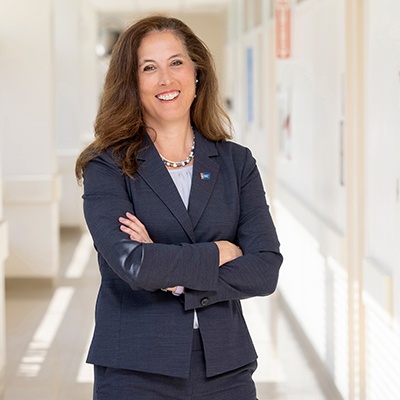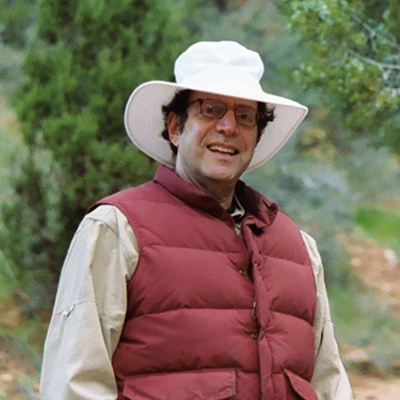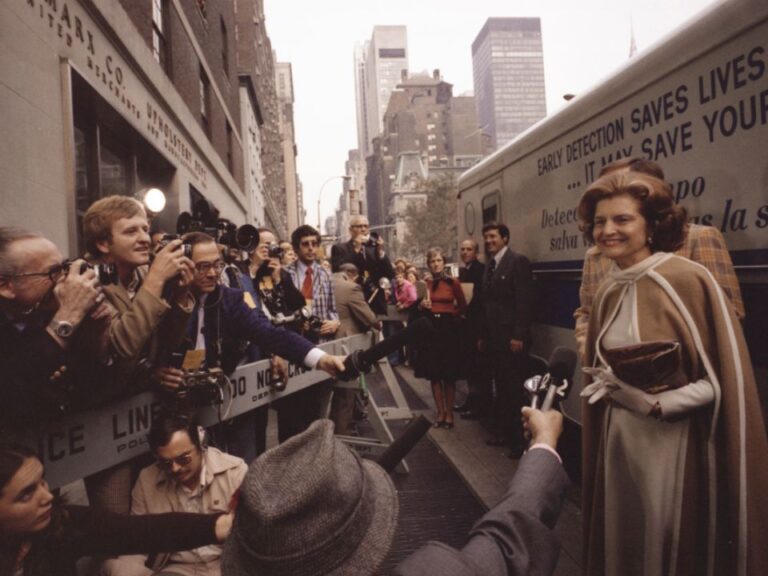What does the most-read story of 2024 say about the priorities of our readers?
Earlier this year, the Centers for Medicare and Medicaid Services created four CPT codes to allow health care providers to bill for patient navigation services.
The American Cancer Society, under the leadership of then-CEO Karen Knudsen, developed a standardized training and credentialing program for professional navigators that meets the CMS requirements for reimbursement (The Cancer Letter, Jan. 5, 2024).
It’s a heartwarming story of consensus and collaboration: the Biden White House endorses a unifying health policy initiative that improves patient outcomes, drives health equity, and allows healthcare providers to do the right thing—and bill for it.
“This is one of the biggest celebrations we’ll possibly have in my time at the American Cancer Society. This truly is a major step forward toward improving outcomes from cancer,” Knudsen said at the time.
A few months later, Knudsen, who was the first woman, the first bench scientist, and the first MBA to run ACS, announced she would be stepping down from the top job. Insiders attributed her resignation to conflicts with the charity’s board of directors.
Coverage of Knudsen’s announcement also appears among our most-read stories of the year (The Cancer Letter, Sept. 13, 2024).
“The team that we have assembled is exceptional, and it’s focused on all the right things for cancer patients and their families,” Knudsen said to The Cancer Letter at the time. “As for me, I’ve been trying to solve the cancer problem in different ways for my entire career, and now seems to be the right time to advance the next stage of my strategy to accelerate progress against cancer.”
Since 2019, sharing our most-read stories with our readers has become something of a New Year’s tradition: mining our web analytics to give you a glimpse into what you and your colleagues were thinking about over the course of the year.
Other topics that drew attention this year include:
- GRAIL’s woes raise questions about the prospects of MCDs and standards for their evaluation
- Biotech companies, investors pour billions into mRNA vaccines as research ramps up in cancer and non-communicable diseases
- Impact factor mania and publish-or-perish may have contributed to Dana-Farber retractions, experts say
- A $150M gift enables City of Hope to establish $1M Stephenson Prize in pancreatic cancer research, build research program focused on the disease
The 2024 election loomed large over oncology this year, with fear and discord from both sides of the aisle.
“We practicing oncologists need to understand what implications the election might have on our ability to care for patients, and how our political landscape will alter the environment for the patients we serve,” wrote Samyukta Mullangi, medical oncologist at Tennessee Oncology and medical director of oncology at Thyme Care, and Debra Pratt, executive vice president of strategy and policy at Texas Oncology, in an Oct. 18 guest editorial.
As the field braces for the impact of a second Trump term, one oncology leader who opined on condition of not being identified by name, wrote, “The challenge is difficult, but we are up to it. After all, we are in the business of defeating malignancies.”
“My advice is that our actions must first be based on what is best for our patients, and second what is best for our members,” wrote another leader in the field. “Also, like I often say, it is more important to do our jobs than to keep our jobs.”
Obituaries often grace the top of our web analytics every year as oncology’s pioneers, icons, and leaders are remembered by friends, colleagues, and loved ones.
This year, several are remembered not just with an obituary, but also their oral histories, interviews, and writings.
Edith Mitchell, who died Jan 21, 2024, appeared on the Cancer History Project podcast in February 2022.
Mitchell was a member of the President’s Cancer Panel, clinical professor of medicine and medical oncology, director of the Center to Eliminate Cancer Disparities, and associate director of diversity affairs at Sidney Kimmel Cancer Center at Jefferson, Thomas Jefferson University.
Reflecting on her decision to go to flight school—a requirement for becoming a U.S. Air Force brigadier general—Mitchell said:
“Most people go to flight school in their 20s, right? I was in my 40s with two teenage kids. So what did I do? I signed up for flight school. I finished. I got my flight wings and my certification in aerospace medicine.
“Very few people know that I am certified in aerospace medicine, but what happened was, I was selected. I am the first woman doctor ever to be promoted to brigadier general in the history of the Air Force.”
After being diagnosed with a dedifferentiated liposarcoma, C. Norman Coleman, who served as associate director of the NCI Radiation Research Program, senior investigator in the Radiation Oncology Branch in the Center for Cancer Research, and leader of a research laboratory at NIH, called The Cancer Letter to set up what was planned to be a series of oral history interviews.
“I don’t know how much time I have,” Coleman said during his first interview. Alas, Coleman died a few weeks later, and his only interview was published posthumously on the podcast.
A list of The Cancer Letter’s top stories, grouped by topic, follows:
Top news features
CMS starts paying for patient navigation; ACS offers navigation credentialing program


Medicare has started to pay for navigation for guiding patients through the maze of health care services in settings where treatment involves multiple specialties.
Under the Biden Administration’s Cancer Moonshot initiative, the Centers for Medicare and Medicaid Services, has created four CPT codes that will allow health care providers to bill for services known collectively as “patient navigation.”
“This is one of the biggest celebrations we’ll possibly have in my time at the American Cancer Society. This truly is a major step forward toward improving outcomes from cancer,” Karen Knudsen, CEO of the American Cancer Society, said to The Cancer Letter. “We’re super passionate about this, as you can tell. We’re not going to have wins like this every year.”
Related:
- Patient navigation benefits health systems, improves care (The Cancer Letter, Nov. 22, 2024)
Suspensions, public outrage ensue as tensions over Middle East sweep through oncology
NYU Cancer Center Director Benjamin Neel suspended over social media posts


Benjamin G. Neel, a widely respected cancer biologist with a considerable social media presence, was suspended from his job as director of the New York University Perlmutter Cancer Center following complaints over his retweets of political cartoons and other materials that were critical of protesters against Israel’s strikes on Gaza and that included caricatures critics described as “anti-Arab.”
Neel, a cancer biologist whose work focuses on cell signaling and who has run the cancer center since 2014, was voted into the National Academy of Sciences a year ago. Neel is the highest-ranking cancer physician-scientist to face suspension as a result of posting social media content about the volatile situation in the Middle East.
His suspension was announced on Nov. 1, four days after NYU suspended a resident named Zaki Masoud for an analogous infraction.
Related:
- Former Perlmutter Cancer Center director Benjamin Neel sues NYU over termination (The Cancer Letter, Nov. 17, 2023)
- Alec Kimmelman named director of Perlmutter Cancer Center, quickly replacing ousted Benjamin Neel (The Cancer Letter, Dec. 1, 2023)
An oncologist navigates terminal sarcoma, insurmountable debt, and “a legacy of grief”
How colleagues and Fargo, ND, neighbors came together to help the Erickson-Abou Zahrs


A cruel reminder crept in alongside the joy that overcame Shauna Erickson-Abou Zahr and Abdallah Abou Zahr at the birth of their daughter, Nadia Carmel, on Jan. 11.
Its specter is never far: 40-year-old Abdallah, a hematologist/oncologist at Sanford Roger Maris Cancer Center in Fargo, ND, is in treatment for recurrent myxoid liposarcoma, and it’s terminal.
“Obviously, there is happiness, but there is the background of sadness, fear of the uncertainty of the future,” Abdallah said to me a few weeks later. “We’re trying to capture every moment with her.”
Editor’s note: On Nov. 27, 2024, the couple posted on their CaringBridge page:
Hello Team Abou Zahr,
We had a week full of heartache and tears. On Monday we learned that Abdallah’s cancer has made continued progress despite the chemo, radiation, and interventional radiology procedures. There are new masses in his shoulder, liver, and chest. The agony we felt with this news is just not able to be put in words and simply takes your breath away. Watching my baby girl watch her parents cry and explaining to Nadia that her parents are very sad and scared is not in the parenting 101 handbook.
With fear on our mind constantly, Abdallah is working to build a plan with the experts in this area on what we can do next to combat this cancer, and keep his quality of life what it can be. Thus far there has not been a united response, which of course will make the decision for Abdallah much more difficult. Making decisions about your patients cancer is far from having to make decisions about your own cancer treatment. You’ve heard me say it many times, but watching a loved one have to navigate an area of cancer that is so minimally researched is sickening when you compare it to the wealth of research (and treatment) available for the type of cancer I faced in 2021.
We are attempting to remain as much connected to hope as possible in face of the daily grief and fear. Abdallah has outlived his initial prognosis, but no amount of time that isn’t a lifetime will be enough for me to accept. He is so special and so important to us, and we need him, his gentleness, his kindness, his nonjudgemental ways, and calmness he brings to his spicy ladies. We will explore what pivots are possible and appreciate all the support, love, and compassion you all continue to offer. We certainly need them.
Love,
The Abou Zahrs
GRAIL’s woes raise questions about the prospects of MCDs and standards for their evaluation


In an industry that set its sights on reshaping cancer detection, GRAIL Inc. had the appearance of a pioneer.
If any multi-cancer detection test was heading toward FDA approval and broad reimbursement, GRAIL’s Galleri was on track to get there first. Or so it might have seemed—and so the company said.
A large-scale MCD clinical study was underway in the United Kingdom, with 140,000 people receiving the test through the National Health Service. Another study, the Medicare-Galleri study, called REACH, an acronym for Real-world Evidence to Advance Multi-Cancer Early Detection Health Equity, is enrolling 50,000 individuals, allowing for three annual screens.
And GRAIL was in conversations with FDA as far back as 2019 about premarket approval of Galleri. The company publicly projected FDA premarket approval by “mid-2024” and “widespread adoption” by 2025.
Investors were bidding up the stock of Illumina Inc., the company that, like a tango partner, spun off GRAIL, pulled it back in, and ultimately spun it off again. Illumina’s share price peaked at $523 on Aug. 16, 2021.
Even without FDA approval, Galleri was commercially available as a laboratory developed test, and as of June 30, GRAIL had sold more than 215,000 tests. This, as well as the sale of other similar tests, created an imperative for NCI to push for studying the MCDs, even as the institute’s budget continued to stagnate.
The question before NCI was straightforward: Are people tested with MCDs being helped, or are they swallowing sciencey nonsense and getting harmed?
Karen Knudsen to leave ACS


The American Cancer Society said that Karen E. Knudsen “announced her desire to transition” from her role as CEO of the 111-year-old charity in order to pursue “the next phase of her strategy to accelerate progress against cancer.”
This oddly worded reason for departure cited in the Sept. 13 press release is consistent with reports that Knudsen, a highly respected academic who undertook the task of reforming ACS had been clashing with some individuals on its 20-member board of directors.
Though the exact nature of these clashes is not publicly known, they can be at least in part attributed to the differences in the culture of academic oncology and that of the ACS political structures, which produce the majority of the board.
Knudsen is the first woman to take the job of the society’s CEO. Also, she is the first former director of an NCI-designated cancer center, the first basic scientist, and the first MBA to accept that job.
But perhaps most importantly, Knudsen was the first ACS chief executive who hadn’t previously served on the charity’s board of directors. Observers say that her departure, however it is explained, raises questions about whether an academic can function at ACS.
Related:
- Over three years as CEO, Karen Knudsen led ACS through COVID—and reversed the charity’s long slump (The Cancer Letter, May 3, 2024)
Impact factor mania and publish-or-perish may have contributed to Dana-Farber retractions, experts say
Learning from past errors (and misconduct) in cancer research


More than a decade ago, Glenn Begley and Lee Ellis published a paper with astounding findings: of 53 “landmark” studies, only six, or 11%, were reproducible, even with the same reagents and the same protocols—and even, sometimes, in the same laboratory—as the original study.
Begley’s and Ellis’s classic paper, published in Nature, gave rise to a movement that captured the attention of the uppermost crust of biomedical research.
Then NCI Director Harold Varmus, for example, focused on the paper—and the broader problem of reproducibility—at a 2013 meeting of the National Cancer Advisory Board (The Cancer Letter, Dec. 3, 2013). In 2014, Francis Collins and Lawrence Tabak, then-director and then-deputy director of NIH, outlined the institute’s plan to address the issue of reproducibility in biomedical research. Journals and funding agencies took action. Declarations, meetings, and reports suddenly materialized, and research funders rapidly responded.
Fast forward to February of 2024. Dana-Farber Cancer Institute is sorting through the 50-or-so papers with alleged evidence of image discrepancies. Biologist Sholto David brought attention to the papers on the blog For Better Science Jan. 2 (The Cancer Letter, Jan. 26, 2024).
So, what, if anything, has changed? Is it possible that a decade after the breast beating over Ellis’s and Begley’s findings research institutions continue to crank out irreproducible results? Does the incentivization structure of academic oncology continue to reward errors and research misconduct?
Related:
- Dana-Farber to retract six papers, correct 31, over “image discrepancies” in papers co-authored by top leaders (The Cancer Letter, Jan. 26, 2024)
A $150M gift enables City of Hope to establish $1M Stephenson Prize in pancreatic cancer research, build research program focused on the disease


City of Hope has received a $150 million gift from entrepreneurs and philanthropists A. Emmet Stephenson Jr. and his daughter Tessa Stephenson Brand to create a program focused on pancreatic cancer research.
The centerpiece of this gift is the $1 million Stephenson Prize, which will be awarded annually to a scientist or team judged to be making the most promising advancements in pancreatic cancer research, treatments, and cures.
The prize is open to individual investigators and teams worldwide, and the first prize will be awarded in 2025.
The $150 million gift from the Stephensons will fund and support research initiatives, including:
- A Pancreatic Biorepository at City of Hope to enhance genomic-informed patient care, aid in early detection, deepen understanding of cancer biology and immune response, and contribute to developing innovative therapies,
- The Stephenson Fellows Program, which will award grants to researchers and support their work in pancreatic cancer research,
- An annual Stephenson Pancreatic Cancer Research Symposium that, together with grants awarded through the Stephenson Fellows Program, will support innovative ideas and promote scientific collaboration,
- Immediate funding to advance novel immunotherapies and support groundbreaking clinical research in pancreatic cancer, and further investment in City of Hope’s Toni Stephenson Lymphoma Center.
The Stephensons’ investment is in honor of Toni Stephenson who, after surviving lymphoma, died of pancreatic cancer in 2020.
Iowa’s Mark Burkard sees a role for data science in bringing clinical trials to rural clinics
The state has the second highest (and rising) cancer rates in the U.S.


A curious piece of paper hangs in a frame outside the director’s office at University of Iowa Holden Comprehensive Cancer Center on the second floor of the General Hospital.
It’s a Dec. 1, 2000 letter signed by Margaret E. Holmes, then chief of the NCI Cancer Centers Branch, congratulating the institution on attaining the Comprehensive Cancer Center designation.
A reminder for history buffs: just 24 years ago, a cancer center could go from no NCI designation to Comprehensive in a single review.
“George shares with me, we are the last center to go from no designation directly to Comprehensive designation,” Mark E. Burkard, the new director of the Holden Comprehensive Cancer Center who started work at Holden on Oct. 1, said to The Cancer Letter.
George, of course, is George J. Weiner, the only director the cancer center had, until Burkard stepped into the job. Weiner, who stepped down early in 2023, after having obtained five NCI Cancer Center Support Grants over 23 years, laying out the anatomy of his decision in riveting detail in a column in The Cancer Letter, is acting as something of an executive coach to Burkard during the new director’s drinking-from-a-firehose phase of the job.
During the search for Weiner’s replacement, Michael Henry, professor of molecular physiology and biophysics at the University of Iowa Carver College of Medicine, served as interim director.
The challenge Burkard is facing is not small.
Top clinical news
CM24 combination improves clinical outcomes in advanced metastatic PDAC in phase II study interim data


Purple Biotech Ltd. announced positive interim data from its randomized, controlled, open label, multicenter phase II study of CM24 in second-line metastatic pancreatic ductal adenocarcinoma presented at a late-breaking abstract poster presentation at the 2024 American Society of Clinical Oncology Annual Meeting.
The phase II study is evaluating CM24, a novel first-in-class multi-functional anti-CEACAM1 antibody, in combination with Bristol Myers Squibb’s immune checkpoint inhibitor nivolumab plus SoC chemotherapy in second-line PDAC patients versus SoC chemotherapy alone. CM24 is a humanized monoclonal antibody that blocks CEACAM1, an immune checkpoint protein responsible for tumor immune evasion and poor tumor response and/or resistance to immune checkpoint inhibitors. The primary endpoint of the study is OS and the secondary endpoints include PFS, ORR, and DCR.
Biotech companies, investors pour billions into mRNA vaccines as research ramps up in cancer and non-communicable diseases


After the stunning success of mRNA vaccines during the COVID-19 pandemic, researchers and biotech companies are racing to prove the utility of the technology in an array of non-communicable diseases—including cancer, cystic fibrosis, and sickle cell disease.
There’s money to keep up the speed: Moderna and BioNTech, the mRNA COVID vaccine pioneers, respectively closed out 2022 with net incomes of about $8.4 billion and $11.4 billion. Private industry aside, the U.S. government paid $31.6 billion during the pandemic to support vaccine research and production, according to a study published March 1 by The BMJ.
Oncology is the main prize, as life sciences companies zero in on promising neoantigen-based mRNA vaccines that can be tailored to the unique molecular profile of each patient’s cancer, increasing the chances of triggering an immune response that could improve survival.
Of note, Moderna and Merck announced in December that their phase IIb trial of a personalized cancer vaccine, mRNA-4157/V940, met its primary endpoint of recurrence-free survival. In combination with pembrolizumab, the vaccine reduced the risk of recurrence or death by 44% in patients with stage 3 or 4 melanoma, compared to the PD-1 checkpoint inhibitor as monotherapy (The Cancer Letter, Dec. 16, 2022).
This was the first demonstration of efficacy for an mRNA cancer treatment in a randomized clinical setting, said Michelle Brown, program lead for oncology at Moderna.
Canine cancers as models: We have barely tapped the full potential of comparative oncology
By Christina K. Lopes, MIA


In 2024, an estimated 6 million pet dogs will be diagnosed with cancer in the United States. As someone who has lost several family dogs to cancer, I know how heartbreaking this diagnosis will be for each of those dogs’ owners.
But I also know that these dogs hold the key to accelerating the development of precision treatments that will save the lives of countless cancer patients, human and canine.
The striking concordance between human and canine cancers—from genetics to incidence rates—means that we can leverage the genomic data from the millions of dogs who get cancer every year to accelerate the development of precision treatments that will save the lives of dogs and people.
The idea of using canine cancers as models for human cancers is known as comparative oncology and has already been used to develop several breakthrough cancer drugs. But to tap into the full potential of comparative oncology we need to study canine cancers at scale, which means bringing precision medicine tools out of the research lab and to the point of care in the thousands of veterinary clinics across the United States.
Consider this: If we were to sequence the tumors of just 1% of the pet dogs who are diagnosed with cancer next year, we would increase the total number of canine tumors ever sequenced more than 10-fold.
2024 election highlights
These stories were most-read by you and your colleagues before—and after—the election.
What will Trump’s return to the White House mean for oncology?
“Our work just got a lot more difficult.”


On Nov. 5, as the American people expressed their will, electing Donald Trump to a second term, I started to wonder what my friends in oncology were thinking.
Trump’s first term, while tumultuous, left the field of oncology unscathed. The leadership at HHS, NIH, and FDA was strong and independent. Despite threats of budget cuts, NIH and NCI budgets grew.
Will this term be different?
The work of oncologists, in one form or another, is about doing good science, protecting the vulnerable, and building defensive structures around our accomplishments.
Some of NCI’s programs may be in jeopardy. There are reasons to worry about some of the requirements of NCI’s designation criteria for cancer centers. These include Community Outreach and Engagement; Diversity, Equity, and Inclusion; and Cancer Research Training and Education Coordination.
I invited a small group of leaders in oncology—who also happen to be among the wisest and most honorable people I know—to tell me how they intend to get through the next four years.
How the 2024 elections can impact cancer policy
By Samyukta Mullangi, MD, MBA and Debra Patt, MD, PhD, MBA


As we come within a stone’s throw of Nov. 5, we can’t help but wonder if and how the election outcome will impact health care policy, and cancer policy in particular.
Although health care has not been a central issue in the 2024 presidential campaign, the election’s outcome has the potential to affect a wide range of health policies.
Paying attention is important; these policies will have direct impact on further consolidation of health care, access, investments in innovation, and how we deliver care to the patients we serve.
Trump and Harris have philosophical differences on several broad health policy areas, ranging from reproductive health to prescription drug costs. They also likely have several areas of (surprising) agreement.
Trump 2016: A look back at the 45th president’s impact on oncology


As oncology contemplates the potential impact of a second Donald Trump term on cancer care and research, The Cancer Letter has compiled a list of guest editorials, news analyses, and data-driven reports that this magazine published during his first term.
Days after the 2016 election, there were uncertainties about President Barack Obama’s signature healthcare programs—the Affordable Care Act and the National Cancer Moonshot Initiative (The Cancer Letter, Nov. 10, 2016).
“We are in a historic time in cancer research,” Elizabeth Jaffee, co-chair of NCI’s Cancer Moonshot Blue Ribbon Panel, said to The Cancer Letter at the time. “We hope we will not lose the momentum.”
During his first term, Trump focused on contracting ACA’s reach, reducing drug prices, and increasing the importation of foreign drugs.
Constant battles over appropriations left many in oncology concerned about paylines and the future of cancer research.
“The collective impact of this scattershot approach to research funding is devastating,” Candace S. Johnson, president and CEO at Roswell Park Comprehensive Cancer Center, wrote in 2019.
“The field of oncology is losing talented young people to other fields because they understandably aren’t willing to work in such a climate of instability. Worthy ideas sit on a shelf, undeveloped, while cancer researchers in other countries move ahead around us.”
At his 25-year “anniversary party,” Pazdur invites Califf and past FDA commissioners to talk about political interference


FDA’s cancer czar Richard Pazdur had a “silver anniversary” at the agency recently. So, he invited some guests—the commissioners he had reported to under the Democratic and Republican administrations.
On Oct. 23, five of these distinguished guests showed up at what was dubbed a “virtual celebration.”
Pazdur didn’t want to hear praise—no massage of the ego whatsoever.
Instead, he asked the commissioners to talk about a subject of vital importance to America’s scientists, clinicians, drug companies—and patients. Pazdur wanted to talk about attempts by politicians to sway FDA actions.
At the virtual meeting, Pazdur was accompanied—if that’s the right word—by a life-size cutout of himself. A gift from the staff, the thing was nicknamed “Avatar Rick,” he said.
“If you have darts, throw them at Avatar Rick, not me; okay?”
Obituaries
Edith Mitchell, medical oncologist, champion of health equity, and brigadier general, dies at 76


Edith P. Mitchell, a medical oncologist, champion of health equity, and the first woman physician to attain the rank of U.S. Air Force brigadier general, died unexpectedly Jan. 21. She was 76.
Related:
- Edith Mitchell on her path from Tennessee farm to becoming a cancer doctor and brigadier general (Cancer History Project, Feb. 18, 2022)
Cullen Taniguchi, radiation oncologist at MD Anderson, dies at 47
By Albert C. Koong, MD, PhD


We unexpectedly lost a dear friend and colleague, Dr. Cullen Taniguchi, in mid-November. Dr. Taniguchi was an exceptional and compassionate clinician, brilliant scientist, and nurturing mentor. Above all, he was a dedicated and loving husband, father, son, and brother. We deeply mourn his loss, but we forever cherish the memories and indelible legacy that he leaves with us.
Jeffrey S. Weber, pioneering immunologist and melanoma expert at NYU, dies at 72
By Bernard A. Fox, PhD, James J. Mulé, IPhD, and Samir N. Khleif, MD


We lost Jeff Weber, an amazing medical oncologist, an impactful clinical scientist, a leading immunotherapist, and one of the prominent global experts in melanoma.
Related:
- Interview with Jeffrey S. Weber, 2023 FAIO Inductee, by the Society for Immunotherapy of Cancer (Cancer History Project, Oct. 4, 2024)
Radiation oncologist, global health expert C. Norman Coleman dies of sarcoma at 79


In September, Norm Coleman received great news: he qualified for the Ironman 70.3 World Championship in New Zealand.
It’s a 70.3-mile race influenced by weather conditions and terrain: you swim 1.2 miles, bike another 56, and run 13.1 more.
Related:
- Weeks before death from sarcoma, Norm Coleman reflected on his career in radiation oncology and addressing health disparities, (Cancer History Project, March 22, 2024)
“Father of tamoxifen” V. Craig Jordan dies at 76
By MD Anderson Cancer Center staff


Pharmacologist V. Craig Jordan, a professor of Breast and Medical Oncology and Molecular and Cellular Oncology at The University of Texas MD Anderson Cancer Center who discovered selective estrogen receptor modulators and developed breakthrough breast cancer treatments, died June 9 at his home in Houston.
Richard A. Rettig, author of an acclaimed history of the National Cancer Act, dies at 87


Richard A. Rettig, the author of an authoritative history of the writing of the National Cancer Act of 1971, died on Aug. 7.
Related:
- Cancer Crusade tells the gripping story of the National Cancer Act (The Cancer Letter, Aug. 6, 2021)
- Rettig’s book, Cancer Crusade: The Story of the National Cancer Act of 1971 is available as an e-book through the Cancer History Project.
Edward Sondik, electrical engineer turned public health expert and one-time interim NCI director, dies at 82


Edward Sondik, an electrical engineer by training, followed a career path that led him to top public health positions. He was a director of the National Center for Health Statistics at CDC, an acting director of NCI, and a deputy director of the NCI Division of Cancer Prevention and Control.
Nathan Berger, founding director of Case Comprehensive Cancer Center, dies at 83
By Case Comprehensive Cancer Center


Nathan Berger, professor of medicine, biochemistry, oncology, and genetics; the Hanna-Payne Professor of Experimental Medicine; the director of the Center for Science, Health, and Society; and a Distinguished University Professor at Case Western Reserve University, died on June 15. He was 83.
Richard Simon, NCI’s visionary biostatistician, dies at 80


New Orleans. Late 1970s, give or take.
Two young biostatisticians, in town for the annual meeting of the Eastern North American Region of the International Biometric Society (ENAR), walk out of a restaurant and are sauntering about the French Quarter.
One of the two, Richard M. Simon, a clinical trials design expert at NCI, confesses to the other, Stephen L. George, then of St. Jude Children’s Research Hospital, that he is a fan of country music.
“He showed me a card indicating that he was a Willie Nelson fan club member,” George, now professor emeritus of biostatistics & bioinformatics at Duke University School of Medicine, said to The Cancer Letter. “Then he confessed that he actually was fonder of the music of Waylon Jennings!”
Edward Copeland, surgeon and breast cancer expert, dies at 86
By Bulletin editorial team, American College of Surgeons


A renowned surgeon and international authority on breast cancer, American College of Surgeons Past-President Edward (Ted) M. Copeland III, died on March 31 at the age of 86.
Related:
- Oral history interview with Dr. Edward Copeland, Oct. 8, 2013 (Cancer History Project, April 10, 2024)
Sidney Wolfe, father of “research-based advocacy,” dies at 86


Sidney Wolfe, a physician who co-founded the Health Research Group, and—as a pioneer of “research-based advocacy”—took pharmaceutical companies to task over bad drugs, often shaming federal regulators into changing policies for the benefit of patients, died Jan. 1 in Washington. He was 86.
From the archives
Some stories come back year after year. We consider this The Cancer Letter’s hall of fame:
The unKOOL, unfiltered history of menthol cigarettes


Quick, what color is menthol?
No, it’s not green. That’s the color of the KOOL, Newport, or Salem cigarette pack. Get it? Green is cool. Red is hot.
Menthol, a component of peppermint oil, is a colorless topical pain reliever like Novocain that the dentist uses to numb a tooth.
The idea of adding menthol to reduce smoking’s harshness on the throat came to Lloyd “Spud” Hughes in the 1920s, after he’d stored his cigarettes in an old tin of menthol crystals that his mother insisted that he inhale for his asthma.
He patented the process in 1924, and three years later, the Axton-Fisher Tobacco Company acquired the patent and began manufacturing “Spud Menthol Cooled Cigarettes.”
Today, as the Biden administration targets mentholated cigarettes, it behooves us to review the history of the tobacco industry’s marketing campaigns that target Black Americans.
Prominent GI oncologist Axel Grothey was forced out of Mayo Clinic for unethical sexual relationships with women he mentored
Three reprimands later, he retains leadership—and mentorship—positions


The aftermath of sexual misconduct at premier medical institutions rarely leaves visible traces: HR is brought in, confidentiality invoked, deals made. The case of Axel Grothey’s exit from Mayo Clinic is a notable exception.
Last year, the prominent gastrointestinal oncologist was reprimanded by medical licensure boards in three states for engaging in unethical sexual relationships with an oncology fellow and a faculty colleague at Mayo Clinic Rochester, his longtime place of employment.
Three reprimands notwithstanding, Grothey has kept his appointment as co-chair of the NCI National Clinical Trials Network’s Gastrointestinal Steering Committee, an influential group that reviews ideas for clinical trials and helps determine the priorities in federally funded clinical research in GI oncology.
Editor’s note: This story is part of a series.
Gynecology’s deadly surprise: Cancers are frequently missed prior to routine procedures


As they reach for surgical tools, gynecologists vastly underestimate the probability that their patients have undiagnosed uterine cancers, a study by Yale University researchers found.
Their paper, published in Obstetrics & Gynecology last month, is immediately relevant in the clinic, because a suspicion that cancer may be present dictates the choice of surgical techniques employed in gynecological procedures that are performed in about 650,000 women every year in the United States.
The newly calculated prevalence rates, based on analysis of data from 26,444 cases in the 2014-2015 American College of Surgeons National Surgical Quality Improvement Program, are staggering:
One in 20 women over age 55 were subjected to surgery for benign indications, but were later found to have malignancies in the main body of the uterus. Nearly one in 10 women over age 55 who underwent total abdominal hysterectomies had hidden corpus uteri cancer.
Overall, prevalence of cancers undetected at the initiation of hysterectomies was almost as high as one in 70. For women who underwent total laparoscopic or laparoscopic-assisted vaginal hysterectomies, the estimated prevalence rose to nearly one in 50.
Related:
- When Surgical Innovation Kills (The Cancer Letter, series)
- Amy Reed, physician and patient who “moved mountains” to end widespread use of power morcellation, dies at 44 (The Cancer Letter, May 26, 2017)
Chernobyl: a 35 year follow up on long-term health effects


In the early morning of April 30, 35 years ago, I was awakened by a call from Anatoly Dobrynin, a long-time Soviet Ambassador to the United States.
He said General Secretary Mikhail Gorbachev wanted me to come to the Soviet Union to help treat victims of the Chernobyl nuclear power facility accident. I had cabled Gorbachev a few days earlier, offering my assistance.
Related:
- Chernobyl, the HBO miniseries: Fact and fiction (The Cancer Letter, four-part series)
Trump et al. are wrong: Biden Cancer Initiative is not to be confused with the Beau Biden Cancer Moonshot


On Nov. 15, shortly after midnight, President Donald J. Trump tweeted a link to a New York Post headline:
“Tax filings reveal Biden cancer charity spent millions on salaries, zero on research”
Waking up later that morning, Fox News host Laura Ingraham and former Trump campaign manager Corey Lewandowski, gleefully lent their voices to the now-familiar cacophony of disinformation. A day later, Fox News host Sean Hannity joined their chorus.
For those just tuning in, the president was retweeting a story about the Biden Cancer Initiative, a small organization that is not to be confused with the Beau Biden Cancer Moonshot, a bipartisan effort to increase funding for cancer research.
Should you eat a kielbasa tonight?
Six experts weigh evidence on papers debunking nutritional guidelines on red and processed meat


We asked six experts in disease prevention, nutrition, and guidelinemaking to discuss the just-published recommendations that disagree with the dietary guidelines promulgated by mainstream health organizations.
The paper, published in Annals of Internal Medicine said there is little evidence of increased risk of cancer, heart disease, and other harm from eating red meat and processed meat.












